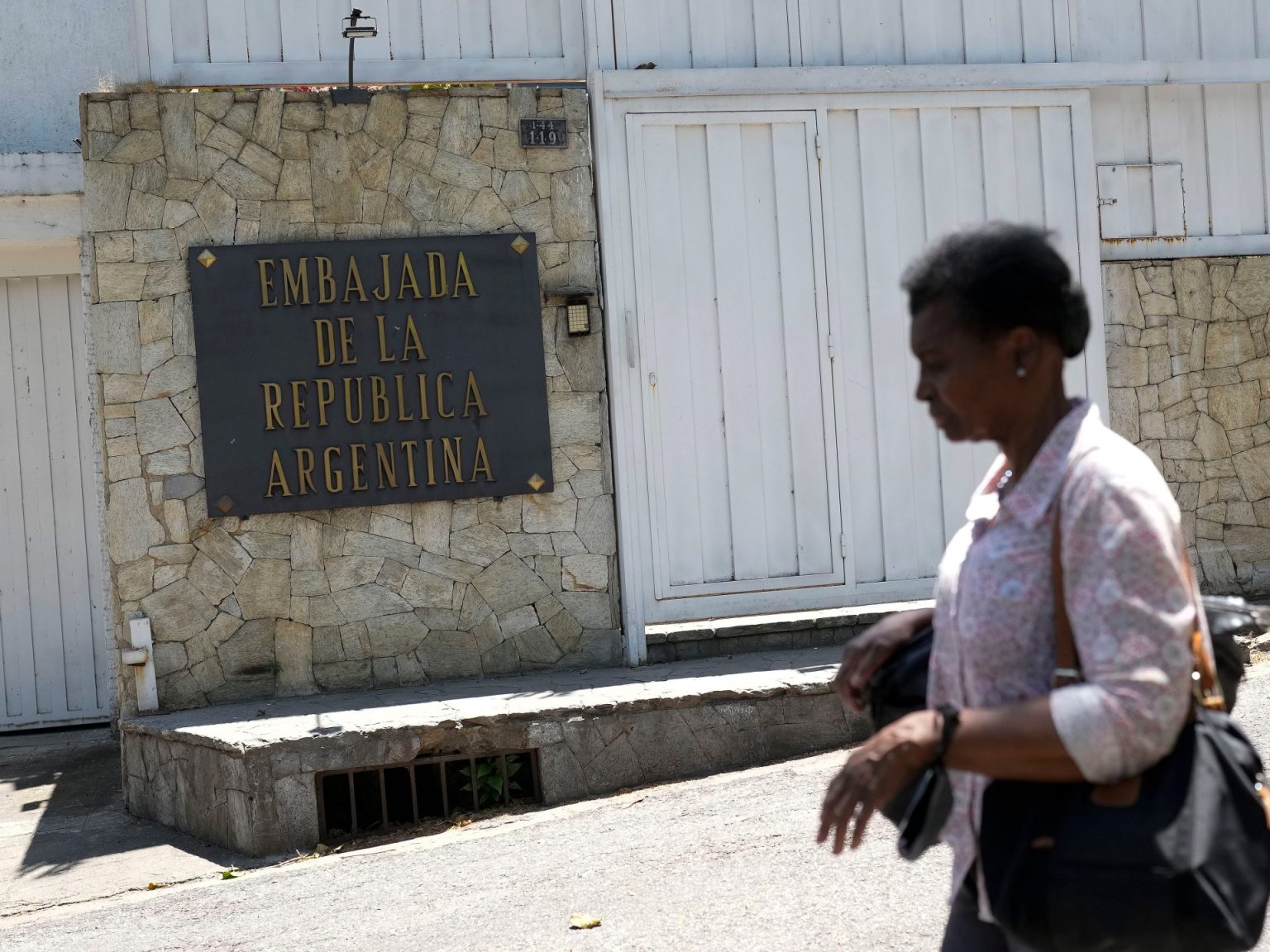Members of Venezuela’s opposition coalition have sought refuge in the Argentinian embassy in Caracas in the midst of a heated election season in the country. The office of Argentinian President Javier Milei confirmed that political opposition leaders are being sheltered in the embassy due to threats of arrest by Venezuelan authorities. The embassy also warned Venezuelan President Nicolas Maduro against endangering the safety of Argentinian diplomatic personnel or Venezuelan citizens under their protection. The situation comes as Maduro seeks a third term in office and faces accusations of attempting to intimidate opposition candidates to secure his victory.
The opposition coalition, known as the Plataforma Unitaria Democratica (PUD), has been facing setbacks leading up to the presidential election scheduled for July 28. Popular opposition leader María Corina Machado, who was polling as the frontrunner among opposition candidates, was banned from holding public office by the Venezuelan government. Despite winning the opposition primary in a landslide, Machado had to name a replacement to represent the opposition after the ban against her was upheld by Venezuela’s Supreme Tribunal. The replacement candidate, professor Corina Yoris, faced challenges in registering for the election, adding to the confusion and uncertainty surrounding the race.
The obstacles faced by opposition figures in the presidential race, as well as the recent arrests of opposition figures, have raised concerns internationally about the validity of Venezuela’s upcoming elections. In October, Maduro agreed to the Barbados Agreement, which aimed to ensure a free and fair election by allowing political groups to choose their candidates freely and allowing international observers to monitor the vote. The United States had pledged to lift certain sanctions against Venezuela’s oil industry in exchange for these commitments. However, recent actions against the opposition coalition have led the US to reimpose some sanctions, and other countries, such as Brazil, have expressed concerns about the election.
Maduro has accused the opposition of seeking to destabilize his government and has framed them as tools of international forces, particularly the US. His administration has been widely criticized for human rights abuses, including torture, arbitrary detention, and suppression of dissent. Human Rights Watch has reported on the government’s harassment and persecution of union workers, journalists, and human rights defenders, leading to restrictions on civic space in Venezuela. President Milei of Argentina, known for his criticism of left-leaning governments, has joined calls for Venezuela to hold transparent, free, democratic, and competitive elections without any proscriptions.
The situation in Venezuela has further escalated as Milei’s administration expressed concern about the acts of harassment and persecution directed against political figures in the country. As the opposition seeks refuge in the Argentinian embassy, tensions are running high as Maduro vies for another term in office amidst accusations of intimidating opposition candidates. The future of the presidential race remains uncertain as international observers and countries, including the US and Brazil, express reservations about the upcoming election. The fate of opposition figures in Venezuela and the stability of the country have become central issues in the lead-up to the July presidential election.


